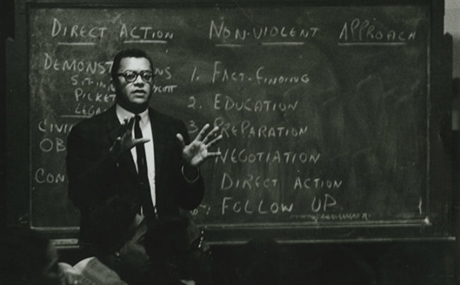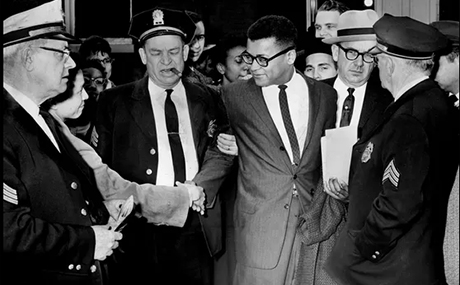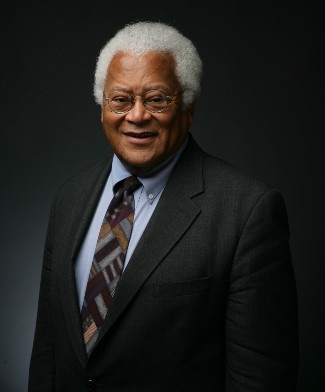
As the country wrestles with equal access to the ballot box and a renewed focus on civil rights, the life of Baldwin Wallace University graduate Rev. James Lawson '51 continues to inspire.
The 93-year-old Lawson was a titan of the Civil Rights Movement in the 1950s-60s and continues to teach students today on how to peacefully act to change the country.
Lawson was a leader in the Southern Christian Leadership Conference and a key advisor to Rev. Dr. Martin Luther King, Jr., who called him "the leading theorist and strategist of nonviolence in the world."
He was also an early mentor to the late civil rights leader and Congressman John Lewis, who called Lawson the "architect of the nonviolent movement in America." Lawson was among the speakers at Lewis' 2020 funeral.

Lawson, who grew up in Massillon, Ohio, came to BW to study sociology and quickly put his values into practice, joining the local chapter of the Fellowship of Reconciliation as well as the Congress of Racial Equality.
Before finishing his degree, he elected to be a conscientious objector of the draft and was imprisoned for 13 months.
Following his release, he finished his degree at BW and went on to spend three years in India as a Methodist missionary, where he studied Gandhi's methods of civil protest.
After returning from India, Lawson pursued his education further and started earning a degree from Oberlin College, where he met King.
King urged Lawson to move south to Nashville, Tennessee, where Lawson would then begin holding programs to teach nonviolent protest methods to students. Lawson also began divinity studies at Vanderbilt University, but he was expelled for organizing lunch counter sit-ins and other nonviolent protests in 1960.
In an interview with the Fellowship of Reconciliation, Lawson stated, "I came to recognize that walking the extra mile, turning the other cheek, praying for the enemy, and seeing the enemy as a fellow human being was a resistance movement."
Decades later, Vanderbilt welcomed him back as an honored professor, and last year, the university honored him with the launch of the James Lawson Institute for the Research and Study of Nonviolent Movements.
 Lawson's expulsion from Vanderbilt didn't slow him down, though. He earned a theology degree from Boston University within the year. He would later become a pastor of the Scott Church in Shelbyville, Tennessee, and continued serving under many churches before retiring in 1999.
Lawson's expulsion from Vanderbilt didn't slow him down, though. He earned a theology degree from Boston University within the year. He would later become a pastor of the Scott Church in Shelbyville, Tennessee, and continued serving under many churches before retiring in 1999.
Lawson never retired from fighting for civil rights wherever he was needed, continuing to speak, teach and inspire young minds to act peacefully in favor of racial equality.
Lawson describes his faith in action as, "The Politics of Jesus and the Politics of God are that people should be fed, that people have access to life, that people should be treated equally and justly."
In October, he told an interviewer, "We are not a nonviolent society. There are, however, millions of people in our nation who practice compassion and care and the sacredness of life, and they appreciate their own lives so much that they try to appreciate all humankind."